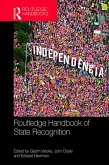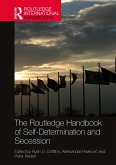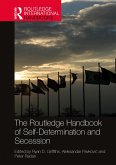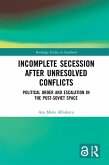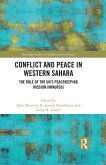Dieser Download kann aus rechtlichen Gründen nur mit Rechnungsadresse in A, B, BG, CY, CZ, D, DK, EW, E, FIN, F, GR, HR, H, IRL, I, LT, L, LR, M, NL, PL, P, R, S, SLO, SK ausgeliefert werden.
Hinweis: Dieser Artikel kann nur an eine deutsche Lieferadresse ausgeliefert werden.
'The Routledge Handbook of State Recognition offers a unique and valuable collection of contributions to the study of the theory and practice of state recognition that ventures far beyond the traditional concerns of international law. A truly interdisciplinary work that integrates a wide range of theoretical and empirical perspectives on recognition, this handbook should be of great value to scholars and advanced students of international relations, political theory and international law.' - Jens Bartelson, Lund University, Sweden
'This handbook examines how and why the world's political map changes. Gathering experts from multiple fields, it is the best single collection on how certain new states get recognised and how other aspiring states exist in a grey zone, unrecognised on the map but unavoidable on the ground.' - Gerard Toal, Virginia Tech, Washington DC, USA
'The politics of recognition form the core of the state-based international order and its evolution. In this volume, Visoka, Doyle and Newman assemble a top-notch group of scholars with diverse theoretical perspectives and expertise. The resulting conversation, and the handbook, is more than the sum of its parts. It is perhaps even more important, however, for its timeliness as conflicts on the mend are newly raw, cold conflicts are becoming more violent and ever more discontents consider demanding unilateral independence.' - Bridget Coggins, University of California, Santa Barbara, USA
'The Routledge Handbook of State Recognition makes a unique contribution to the literature on state recognition. The editors aim to address a wide audience, as the handbook offers a comprehensive and multidisciplinary take on the theoretical and empirical aspects of state recognition. While the recognition of states influences and shapes the international system, the theory and practice of state recognition remain on the margins. The handbook will therefore be of great interest to scholars, researchers and students working in fields as varied as International Relations, foreign policy, area studies and international law. There is plenty to dwell on and appreciate in this handbook.'--International Affairs, 97, 1, January 2021
'...the volume is an excellent and complete resource for anyone who wants to understand the legal basis, processes, and dynamics of state recognition, including its challenges and main critiques'. -- Ana Carina S. Franco, Journal of Intervention and Statebuilding, July 2022



